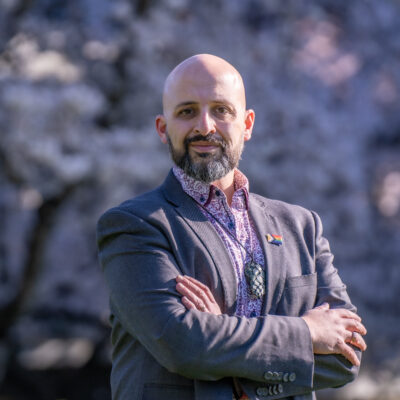Future-focused executive education
Kiwi business professionals have no shortage of educational programmes and short courses to choose from to improve their performance and potential. NZBusiness checked out the menu offered by one of […]
Kiwi business professionals have no shortage of educational programmes and short courses to choose from to improve their performance and potential. NZBusiness checked out the menu offered by one of New Zealand’s leading universities.
The University of Canterbury’s strong brand value could be perceived by many to mean that all programme content is academic in nature.
However, Liz Foxwell-Canning, director of Executive Education and Industry Programmes, says it’s not all about academic theory; each one of UC’s Executive Education programmes deliberately has a practical application element at its heart.
“There is reference to theory of course, but people who are time-poor want and need to be exposed to the concepts and tools they can use to apply them in their business or role straight away, and see the impact of spending that time away from the
business,” she says.
“They need an ROI, quickly.” It’s also about robust, tested ‘real world’ content designed to build capability and equip people with tools they’ll have in their toolkit for the rest of their lives.
Industry expertise is at the foundation of UC’s programme, Foxwell-Canning explains, “much of which is delivered by our Professors of Practice – seasoned industry practitioners who focus on the application of toolkits in the business setting.
“This ensures that content is both aligned with best practice and practical in its nature.”
UC is not into reinventing the wheel. It has designed learning experiences in subjects not being delivered by other providers, such as Strategic Foresight and Futures Thinking.
This future-focused approach aligns with UC’s MBA programme, so there is some cross pollination happening with students.
Every step of the way the focus is on customer experience, with courses held in facilities that allow the intimacy that comes with in-person learning to develop relationships and networks in the room as well.
“That’s our secret sauce,” Foxwell- Canning says. “Every short course or programme has an element of networking built into it.”
MORE CHOICES IN 2024
The number of UC short courses has been increased to 25 for next year, including a new course on Capital Raising in New Zealand. This course addresses the idiosyncrasies of building and growing businesses in Aotearoa.
UC is also trialling a subscription programme in 2024. Pay an upfront fee and you can attend an uncapped number of courses during the subscription period. Options like this make it very affordable for individuals and corporates, says Foxwell-Canning. With 25 course topics, students wanting to upskill have a lot to choose from. To help them make their selection, Foxwell-Canning says students should consider their strategic plan.
“Ask yourself what could stop you from achieving or executing on that plan, then find the course to fill that gap.
“Also, be prepared to try new things, or test yourself, by being open to different perspectives,” she says.
The University of Canterbury is also willing to bring a bespoke programme to a participant’s workplace or business if required.
“If there’s enough interest and you can get a group of people in the room, then we can adapt existing programme content, or build something from scratch that meets the needs of that group,” explains Foxwell-Canning. “It’s often the more economical option.”
INVESTING IN YOUR FUTURE
There are two broad categories across UC’s Executive Education topics.
“The first is for those who are aspirational, early-mid-career individuals; the second category is aimed at those already in senior
leadership or board roles,” explains Foxwell-Canning.
“We’re seeing a lot of interest from individuals wanting to invest in themselves and their future potential, and businesses keen to develop their people across the board.”
For smaller businesses, up to 50 percent co-funding is available via MBIE’s Regional Business Partner programme countrywide.
“UC has had a number of people from smaller businesses use this fund to help their professional development budget stretch further,” says Foxwell-Canning. “It’s a great scheme because it really puts education and business capability at the top of the agenda.”
Past participants, particularly those from out of Christchurch, speak highly of the whole course experience, particularly around how participatory and ‘active’ they are. This group learning and sharing of stories lends a special, unique aspect to the whole experience.
‘sponsored content’






